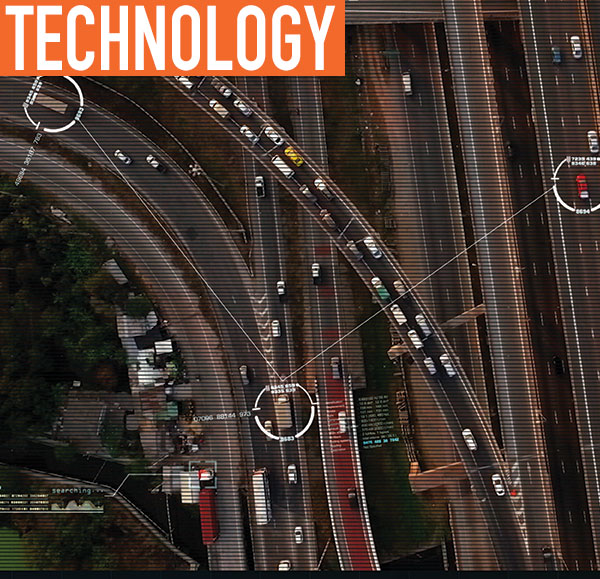You’re the owner of a growing business. What started out as a one-man, one-truck job has quickly multiplied into dozens. Managing dozens of workers in dozens of trucks has its challenges, and one way many alleviate those challenges is through the use of GPS tracking.
If you’re in the market for a vehicle tracking system, there are few things you should know. The first is that a good tracking system goes beyond tracking a vehicle’s location; a great system also provides information that is relevant to your business, saving you time, money, and headache.
VALUE OF TIMESHEETS
They say time is money, and in many cases, they’re right! When team members inaccurately report their working hours, your company’s wallet suffers. Something as valuable as time needs an accurate tracker. Accurate timesheets not only validate hours worked, but they also enable you to more easily bid projects. Tracking systems that offer APIs allow this data to be fed into your own business systems, including payroll, ensuring your employees worry less about paperwork and more about the job at hand.
Data from timesheets should have the ability to focus on individuals or groups of drivers to create custom reports. Managers and drivers should also be able to access these reports through email or a mobile device, as they are often away from the office at a jobsite.
FUEL EFFICIENCY
How are your vehicles driven? Do you have a fleet of aggressive drivers and fast accelerators that frequently burn through fuel? Or are your drivers cautious and mindful? These are questions that can be answered through a vehicle tracking system.
Mileage and fuel usage reports are an important aspect of gauging your fleet’s fuel efficiency. For instance, geofencing alerts that flag unauthorized trips and unapproved use of company fuel helps drive those costs down. Other reports that monitor daily routes and driving behaviors can also positively impact fuel costs, highlighting unnecessary miles and excessive idling, acceleration, or braking. These reports promote good driving scores, and good scores have been shown to reduce fuel consumption by up to 25 percent (Frost and Sullivan 2015).
OVERHEAD COSTS
What’s the best way to manage a fleet so that no business is lost if a vehicle is in service? What about when you send a vehicle to a location across town that was within three miles of another fleet vehicle’s location? These are overhead costs that aren’t always considered yet cut into a company’s bottom line.
Combat unexpected downtime with a tracking system. Some systems allow you to set up vehicle inspections so that downtime can be planned effectively. Another feature to look for in a tracking system is the ability to identify your nearest vehicle to a specified address so that you can best deal with urgent requests in real time.

SUPPORT AND SAFETY
You’ve covered your basics. Your company is more fuel efficient, mindful of overhead costs, and more effectively manages time. But how is your company’s reputation? Your drivers often carry your business’ reputation. Make sure their impact is positive.
Vehicle tracking systems that compile driving behavior scores are helpful for fleet managers in that they can produce ways of incentivizing exemplary driving styles. Fleet managers can track most improved driving behaviors, most work completed on time, etc, and then reward drivers accordingly. Some systems allow drivers to access their own driving data, giving drivers useful feedback that enables them to control their own progress.
When it comes to safety, you can never go wrong with adequate rest. For those drivers who travel long distances, a system that tracks journey length and time helps ensure that drivers are getting the rest they need to stay alert and productive. Having a vehicle tracking system also helps keep your drivers covered when subject to false claims about their driving behaviors or punctuality on site.
TRIAL RUN
With a plethora of tracking systems out there, it’s difficult to know which system perfectly fits your company’s operations without first putting a system into action. Thankfully, many companies offer a trial of their system, either through a free trial or an online walk-through.
Some providers offer opportunities to connect with staff, understand their approach to customer service, and explore the support package they’ll offer you as a customer. Be sure to try a system long enough for you to decide if it will benefit your business.
WHAT IT’S WORTH
Depending on your business, signing a lengthy contract with a GPS tracking provider could be a risky move to make; after all, no one knows what the future holds. But as long as you’re confident a system can improve your business’ operational efficiency and save you money, committing to a 12-month contract could be a smart decision.
To put it into perspective, ask yourself if a GPS tracking system would prove a worthy investment. If a tracking system allows your business to take on a larger workload each week, and if overtime payments could be reduced by several hours, what would be the return per employee? Additionally, focusing on driving behaviors and eliminating private vehicle use could reduce fuel use. Many times it’s clear to see that a small monthly payment to a GPS tracking provider could lead to a large return.
FOR MORE INFORMATION
The information in this article was adapted from Quartix’s whitepaper “A buyer’s guide to vehicle tracking.” Quartix has delivered real-time vehicle tracking and telematics solutions since 2001. More than 12,000 businesses with 350,000 tracked vehicles chose Quartix. Find out more, visit www.quartix.com.
MODERN WORKTRUCK SOLUTIONS: FEBRUARY 2019 ISSUE
Did you enjoy this article?
Subscribe to the FREE Digital Edition of Modern WorkTruck Solutions magazine.





